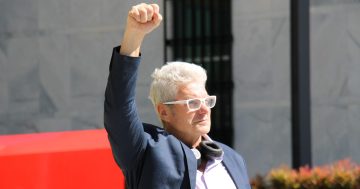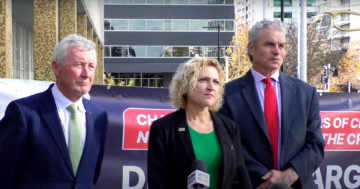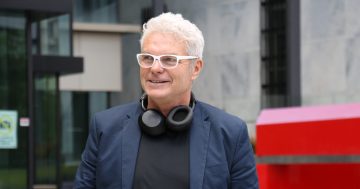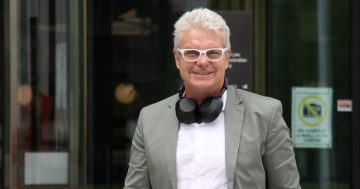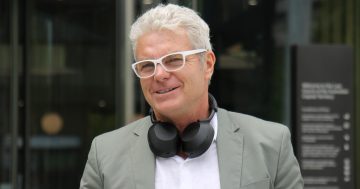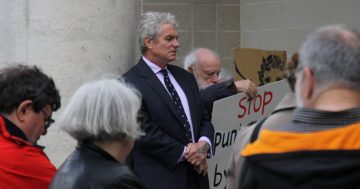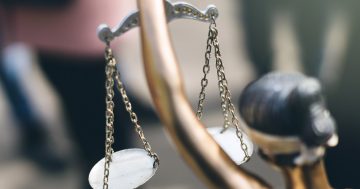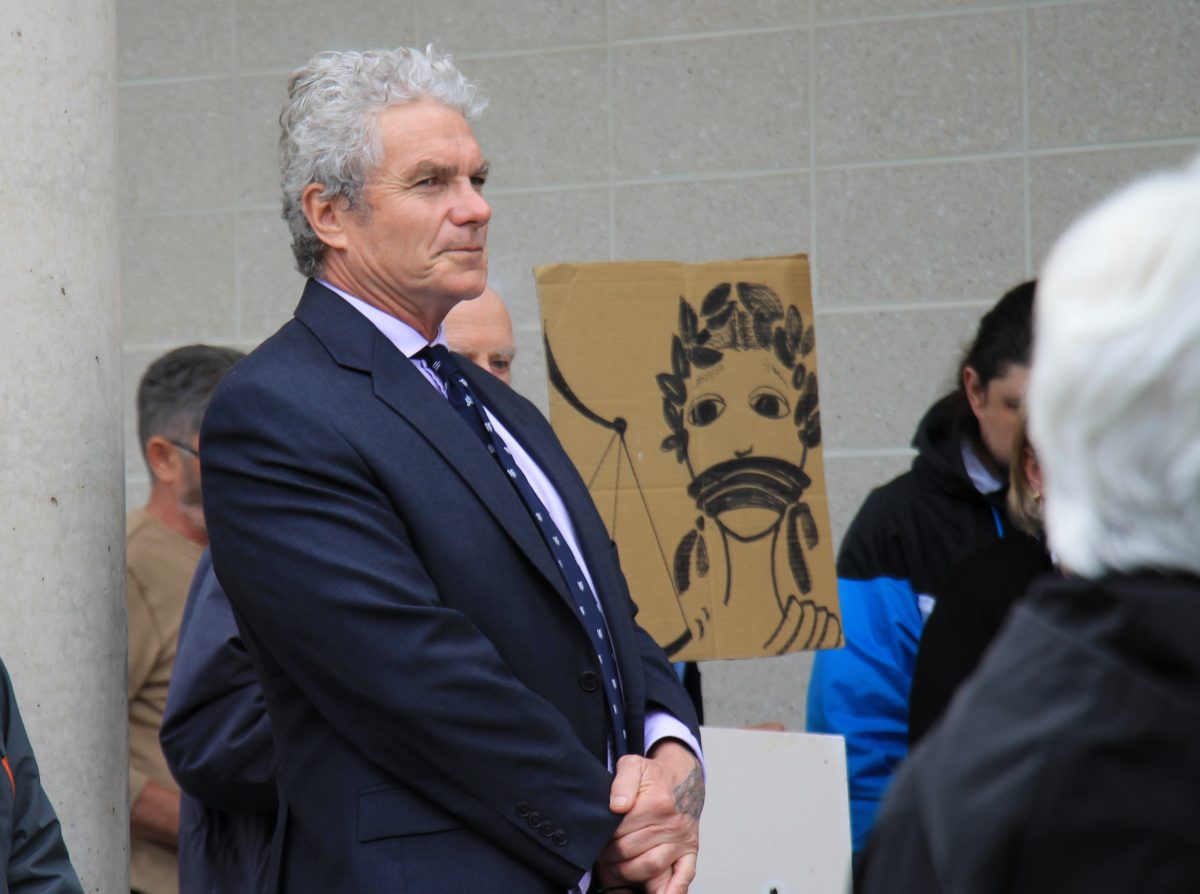
David McBride, pictured at a rally outside the courts in 2022. Photo: Albert McKnight.
A trial date has been set for the long-running whistleblowing case of David McBride.
He has been fighting charges laid over allegedly giving information about possible war crimes to ABC journalists for several years.
In 2018, he was handed three counts of breaching the Defence Act, one count of unauthorised disclosure of information and one of theft of Commonwealth property.
Earlier this week, Chief Justice Lucy McCallum told the ACT Supreme Court that the proceedings had been on foot for years and requested all legal parties look at trial dates.
On Thursday (13 April), the court heard the chief justice had also said a date had to be set for the trial that day for it to take place this year.
Mr McBride’s jury trial was ultimately scheduled to start on 13 November 2023 and run for three weeks. His bail was continued to that date.
The court heard there had been difficulties in finding a date that was agreeable to the three parties involved, being his own counsel, the Commonwealth Department of Public Prosecutions and the Attorney-General’s office.
After the development, Human Rights Law Centre senior lawyer Kieran Pender said whistleblowers who speak up about grave human rights violations should be protected, not prosecuted.
“There is no public interest in prosecuting David McBride, who blew the whistle on alleged war crimes committed by Australian forces in Afghanistan,” he said.
“With a trial date now set for late 2023, McBride will have spent more than five years facing punishment by process.”
Mr Pender also said while the case should never have begun, it was not too late for Attorney-General Mark Dreyfus KC to end it.
“Rather than prosecuting whistleblowers, the Australian Government should get on with fixing whistleblowing law and ensuring accountability for Australia’s wrongdoing in Afghanistan,” he said.
Speaking on Twitter after the trial date had been set, Mr McBride said, “I was first charged in Sept 2018, so it will be over five years by the time it gets to court”.
Last October, his legal team withdrew its bid to use the Public Interest Act to defend his whistleblowing, meaning the matter would proceed to trial.
At the time, his solicitor Mark Davis, from Xenophon Davis, said “extreme secrecy” had covered the entire case, making it impossible for them to access evidence and form a defence to be argued in court.












